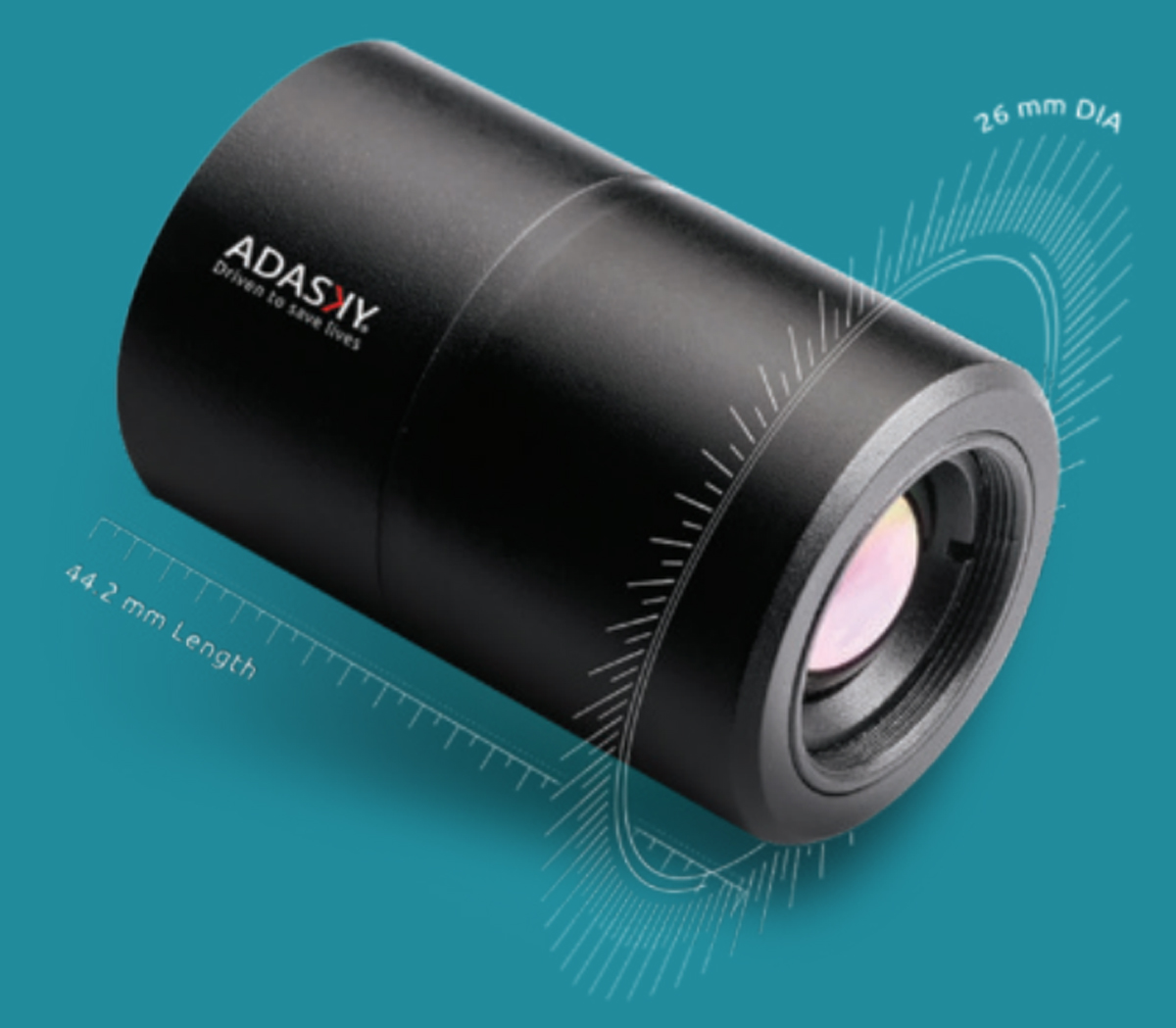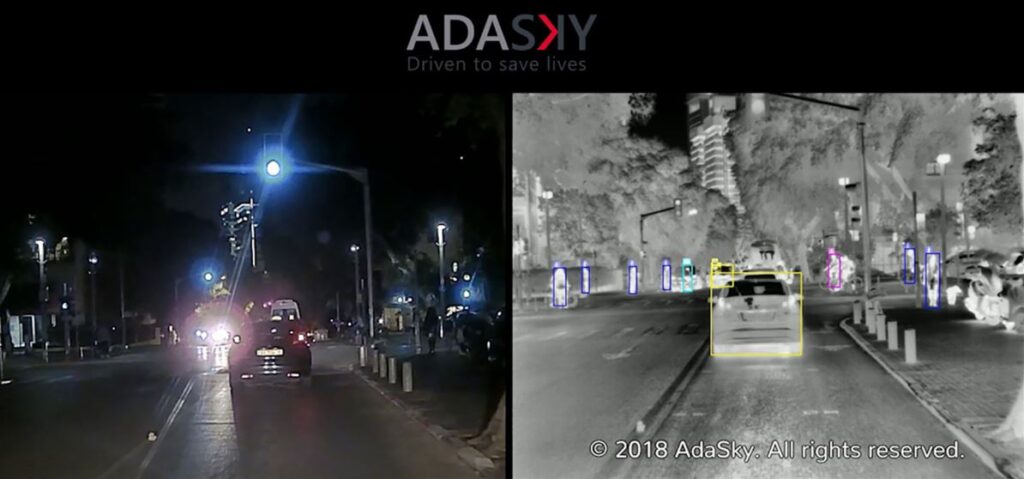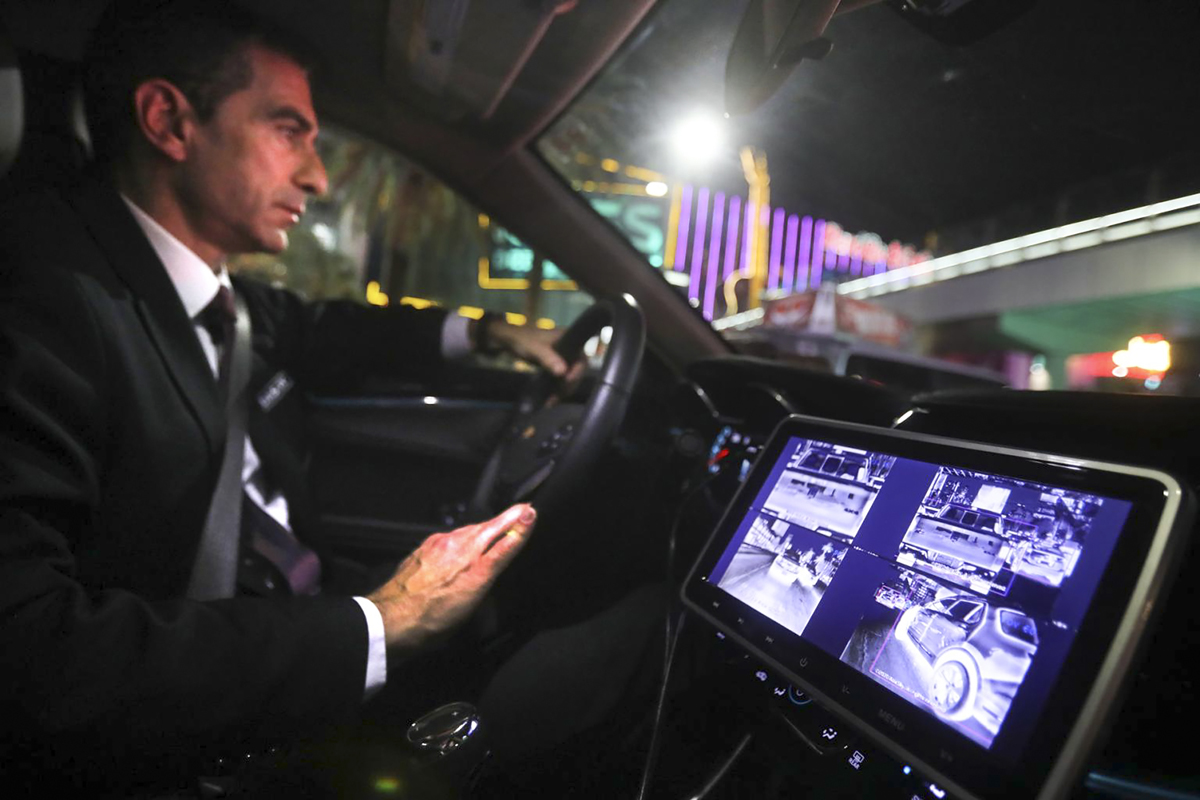
Sarada Vishnubhatla speaks to Raz Peleg, Vice President, Business Development, Adasky, to know more about the Israeli company that develops and manufactures intelligent LWIR thermal imaging cameras for conventional and autonomous vehicles, and to find out about the scope of their services, target markets and their winning strategy.
Adasky, an early growth company from Israel, is making a strong name as the manufacturer of long-wave infrared sensing technology that is driven to create safe mobility in the future. Adasky’s automotive thermal cameras are designed to mitigate accidents in all weather conditions.
Raz Peleg, Vice President, Business Development, Adasky shares: “Unlike a daytime camera, a thermal camera is able to see beyond the light of the vehicles to detect animals, pedestrians in total darkness, and in total fog.”
According to him, the current standards of the automatic emergency braking in cars and trucks lack the ability to recognize pedestrians, or animals at night. Adasky’s thermal cameras have the ability to enhance the sensor suite that the vehicles globally are equipped with.
He states that: “We have reinvented thermal sensing with our automotive thermal camera by transforming infrared imaging technology into an advanced intelligent LWIR camera that can more than meet the demands and needs of the automotive domain today to keep the world safe.”


‘Seeing’ made easy
Adasky’s automotive thermal cameras will be installed in the vehicles of a major US automotive OEM – production of which may begin in 2024. Besides, Adasky is receiving RFQs for an impressive million-odd units. Adasky’s state-of-the-art manufacturing plant is situated in Israel, and with an office also in the US.
The USP of their product lies in the fact that Adasky is able to offer safe passage to pedestrians and animals at night on busy roads by offering a thermal representation of the world outside. The AI recognizes the road users and objects, and highlights them in different colour codes in order to help the autonomous vehicles and the automatic braking systems to make necessary decisions. The logic behind this is that a pedestrian can surprise the vehicle differently than a big truck or a small car. And the AI needs that information to make an intelligent decision.

Peleg explains: “The biggest advantage offered by our system is that it needs only milli-seconds to recognize the obstacle – whether living or an inanimate object. We have trained our AI to recognize animals – larger than dogs and sometimes those that are the size of cats too – almost instantaneously. Hence, our solution is applicable in the autonomous vehicles as well as in the automatic emergency braking systems. Think of those people who are beyond the extent you can see in the light beam or through total fog. And, if you are a logistics driver and need to drive in heavy rains –our system is designed to help everyone in all these scenarios to reach their destination safely.”
The technology is designed and created inhouse and Adasky has the capability of getting into mass production in their facility. The company is confident that the OEMs the world over and the concerned policy makers will soon recognize the need for better and improved innovative and efficient accident-mitigating solutions. The officials at Adasky hope that the automotive domain will soon realize the high efficiency of thermal sensors compared to conventional ones.
Peleg explains: “We are answering RFQs for L2 passenger vehicles currently. We are also answering autonomous projects because they need redundant systems. Our solution can execute what other systems such as LiDAR and radars cannot do. Our solutions are attractive to last mile delivery service providers, including drone companies since our product weighs less than 50 grams, consumes a mere one watt of power, is solid state and offers good performance. And also, mainly because drones need to land safely with their packages without hitting electrical wires while they are navigating.”
Making mobility accident-proof
Adasky’s smart LWIR camera is adhering to the automotive standard of a decade of operation aiming to never malfunction. Today, the system delivers excellently in extreme temperatures. The idea is that even if it does malfunction, the system should be able to send the signal back. Peleg and his team are proud that this is the extent of the safety levels that Adasky commits to and stands for. They are confident that once the system is operational and goes commercial, it means that the industry and the OEMs would have tested the system with the harshest standards, strictest certifications and stringent regulations available in the automotive domain. Peleg is confident of passing all these tests with flying colours.
He shares: “The camera needs to be fitted on the exterior of the vehicle so that it can react to the outdoors it is moving in. Our camera is the smallest that is available in the market today. Currently, we have the capacity to manufacture 100,000 cameras yearly. We are ready to duplicate this production line with any tier-1 company anywhere in the world, including India, to be able to cater to more and more customers. We are fully geared up to do that.”

Overcoming challenges
Driving and negotiating traffic is rife with many possibilities for accidents. And it is the universal endeavour of companies and automotive stakeholders to have both the drivers and the pedestrians thoroughly aware of the dangers on the road. Adasky is set out to resolve a whole range of issues and challenges – ranging from keeping pedestrians safe when they walk with loud music playing in their earphones to the drivers getting blinded by the oncoming vehicles’ headlight beams, and everything in between.
Peleg says: “Around the world, 1.3 million fatal accidents on the road occur every year. Our solutions are helping the number of pedestrian deaths go down wherever we are working. We are resolving not a lone specific challenge but are solving an entire gamut of problems – be it harsh weather, irresponsible driving or negligent walking.”
Innovation – Bringing key changes
The vehicle industry today has opened up to smaller yet innovative players alongside the big known entities. When it comes to the Indian context, Adasky is enjoying initial engagements with Indian vehicle majors and is looking forward to building further developments.
Peleg is confident of making a positive change in the Indian market: “It will be an advantage for us to be in the Indian market, primarily because it is the third largest market in automotive globally, and such a market should be addressed by a company like Adasky. For us, India is important and we would like to get in touch with more Indian tier-1 suppliers and OEMs. All the big OEMs around the world are producing in India or getting serviced by Indian companies in India, especially the tier-1 suppliers. So, Adasky – as a tier-2 company – would love to be in touch with them, and we would like to reach out to mutual customers as a team with them.”
It is heartening to see that India is firmly placed on Adasky’s roadmap to safekeep the future of mobility.